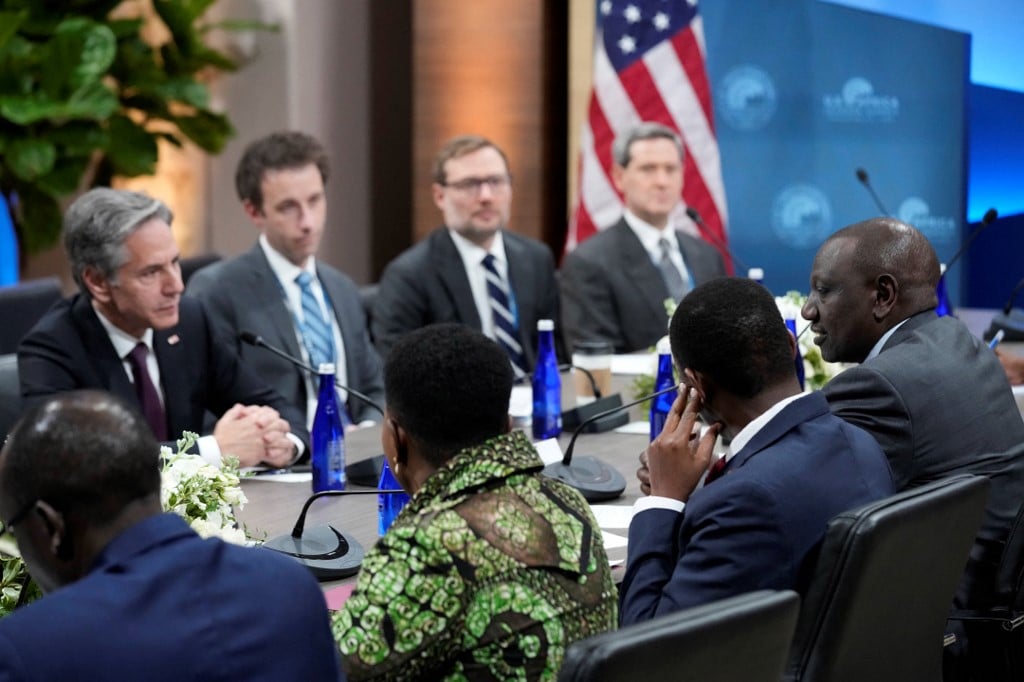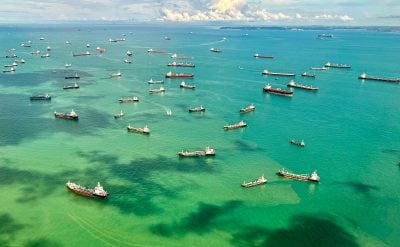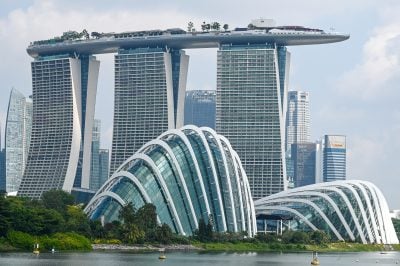William Ruto landed in Washington, DC, last week alongside other African heads of state to attend President Biden’s US-Africa Leaders’ Summit, a chance for the US to mend strategic relationships seriously damaged during Donald Trump’s tenure.
As well as private sector meetings with Google and the Rockefeller Foundation, and broad discussions on economic growth, security and political relations, the Kenyan president delivered a statement of his own on boosting trade and investment between Africa and the US.
Ruto embraces West
For Ruto, who defeated veteran opposition candidate Raila Odinga in a tight election in August, it is familiar territory. Since taking office he has embraced Kenya’s economic and diplomatic relationships with the US and other Western countries, including the UK, causing onlookers to wonder whether the “Look East” policy of his predecessor, which saw Chinese-built infrastructure spring up across the East African country, is coming to an end.
Amid allegations by US officials about Chinese predatory lending to African countries, which many China-Africa experts say are unfair, and concerns over Kenya’s mounting public debt, Ruto campaigned in part on a Beijing-sceptic platform.
Plans to release secretive government contracts signed with Beijing for infrastructure projects, end the infrastructure borrowing boom and deport Chinese workers doing jobs that Kenyans could do were red meat to Ruto’s working-class base, who were promised an economic paradigm-shift that would elevate Kenya’s “hustlers”.
All this came on the heels of an infrastructure building spree by his predecessor Uhuru Kenyatta that included a Standard Gauge Railway (SGR) linking Nairobi and Mombasa and a 27km expressway in Nairobi (the first of its kind in Africa), both built and funded by China. Today, Beijing accounts for two-thirds of Kenya’s $38bn external debt. In October Nairobi defaulted on its repayments, incurring a fine which it paid.
Xi Jinping was congratulatory following Ruto’s victory. “I attach great importance to the development of China-Kenya relations, and stand ready to work with President Ruto to advance the development of China-Kenya comprehensive strategic cooperative partnership to the benefit of the two countries and two peoples,” the Chinese president said.
Meeting China’s ambassador after winning the election, Ruto said his election manifesto offered a blueprint for deeper engagement between Kenya and its biggest creditor.
After taking office, though, Ruto’s government released the SGR contract, albeit heavily redacted. And he delivered a shot across the bow to Beijing by allowing importers to choose their preferred means of transporting cargo from the Mombasa port, ending his predecessor’s policy of mandating use of the Chinese-built SGR. Many opted to transport goods by lorry, taking business from the railway.

Overtures yield results
Ruto’s clear overtures to Washington have been in stark contrast. And if Ruto has met China’s ambassador just once, according to public statements, the president and his deputy Rigathi Gachagua have met high level US officials almost 20 times since September.
In Nairobi he told US deputy secretary of agriculture Jewel Bronaugh that Kenya is primed for more trade deals with the US under the latter’s Africa Growth and Opportunity Act. During a trip to New York, Ruto told American business executives that his administration would usher in a business-enabling environment in order to spur foreign direct investment, wealth creation and job growth.
He also met Antony Blinken, the US secretary of state, to discuss trade and investment, and agreed with America’s ambassador to Kenya, Meg Whitman, to strengthen ties in trade, agriculture, health and regional security.

The overtures appear to be yielding results. Moderna will soon begin manufacturing vaccines in Kenya, according to plans, joining large American firms such as General Electric, Meta, Google and Microsoft in establishing a footprint in the East African powerhouse. After discussions with Mike Hammer, the US special envoy for the Horn of Africa, Kenya stepped up its peacekeeping role in war-torn Ethiopia and the DRC, even deploying troops in the latter.
The US embassy in Nairobi meanwhile stated proudly in September that America is now Kenya’s biggest export market, largely due to growth in the textile sector, in which Ruto’s administration wants to create 5m new jobs. When it comes to imports, the US ranks seventh.
“Much of this is about trade revenues – the US is the largest export destination for Kenyan goods and there is a far more even trading relationship than with China. China is Kenya’s largest source of imports by some distance but there is a huge imbalance when compared to exports,” says Fergus Kell, a Kenya expert at UK international affairs thinktank Chatham House.
“Ruto’s economic agenda is built around expanding productivity in sectors such as manufacturing and agriculture, and the US is seen as a key destination for exports from these sectors. There is also an ambition to reduce import dependency through local production, which would have knock-on effects for China’s major share of imported goods.”
At Cop27 in Egypt, Ruto discussed climate change mitigation with Kristalina Georgieva, the head of the IMF. In early November the lender agreed to hand $433m to Kenya as part of a $2.34bn loan approved last May. Kenya had agreed to IMF conditions including ending subsidies on fuel and maize flour, which critics said were vulnerable to abuse, cutting government spending and managing debt.
Meanwhile, new UK foreign secretary James Cleverly’s first official trip was to Kenya in early December. Britain has pledged hundreds of millions for new investment projects in Kenya. The UK has strong historic ties with Kenya as the former colonial power, but has seen its influence wane in recent years with the African country’s shift towards China.
China’s Africa loan book ‘maxed out’
Some experts feel Kenya’s rapprochement with the US says more about Beijing’s changing priorities and Kenya’s economic straits than American policy.
“It has been clear for a while that China’s Africa loan book has been maxed out and that China is being extremely parsimonious in terms of net new money,” says Aly-Khan Satchu, an economist and the CEO of investment adviser Rich Management. “The signal was emitted in 2016 at the Forum on China-Africa Cooperation meeting where Xi Jinping spoke of ‘The End of Vanity’, referencing Chinese lending on the continent.
“President Ruto inherited a balance sheet which was running on empty with debt servicing consuming over 50% of government revenues and an economy which was correctly described as at high risk of debt distress.”
Economist Reginald Kadzutu, CEO of Amana Capital in Nairobi, says the weakness of Kenya’s economy had left Ruto with little choice but to cast around for new investment and partnerships.
“I think he can’t get any money from the East anymore so he is trying to play the ‘look back West’ card to the West, which they will fall for,” says Kadzutu. “Kenya needs to boost its manufacturing sector in agri-processing and address gaps in intra-Africa trade for them to have any reasonable chance of fast and sustainable output growth that lifts people out of poverty.”
Looking for wealthy friends
Even with closer economic ties to the US, Kenya’s economy is in serious trouble. Satchu estimates that the country has a $5bn hole in its budget. Meanwhile labour productivity has stagnated in recent years and the country’s debt position is increasingly unsustainable amid a fiscal deficit and serious import dependence.
Poverty, inequality, youth unemployment and weak private sector investment remain endemic challenges, analysts say. The economy is still reeling from the effects of the coronavirus pandemic, which devastated exports, and has been hit hard by supply-chain disruptions, the war in Ukraine, which blocked vital wheat imports, and the worst drought in 40 years.
Inflation is hovering at just under 10%, prompting Kenya’s central bank to hike interest rates, and the Kenyan shilling has plummeted this year against the dollar. And while the World Bank expects Kenya’s economy to grow by 5.5% in 2022, the international lender notes elevated uncertainty due to Kenya’s exposure to global price rises as a net importer of fuel, wheat and fertiliser.
Against that punishing economic backdrop, and with his voter base expecting a lot following a bruising election campaign, Ruto must find wealthy friends wherever he can.
Not long after taking office he flew to South Korea and received $1bn in project financing, including for a habitually-delayed tech city at Konza, 50 miles south of Nairobi, which has been billed as Africa’s Silicon Valley.
“Overall, this is less about making a hard pivot towards the West and more about trying to balance different opportunities,” says Kell of Chatham House. “Ruto has to manage China more as a creditor than as a partner on major infrastructure.” That is because China’s largesse in Africa is slowly coming to an end due to turbulence in the Chinese economy – and interest-bearing loans are unlikely to be written off.
Kadzutu is sceptical about the chances of economic success even with a shift towards the US. “I don’t see any companies arriving, if we give it six months or so the true picture will come out about if there are real FDI inflows. The Kenyan [consumer] market is very small with little disposable income and an uncompetitive business environment in terms of costs,” he says.
“There is a lot of work that needs to be done to make the country attractive for the level of FDI that will be transformative. The look West strategy, if it doesn’t come with cheap long-term concessional loans, won’t work.”
Want to continue reading? Subscribe today.
You've read all your free articles for this month! Subscribe now to enjoy full access to our content.
Digital Monthly
£8.00 / month
Receive full unlimited access to our articles, opinions, podcasts and more.
Digital Yearly
£70.00 / year
Our best value offer - save £26 and gain access to all of our digital content for an entire year!
 Sign in with Google
Sign in with Google 



